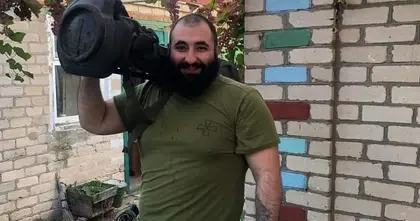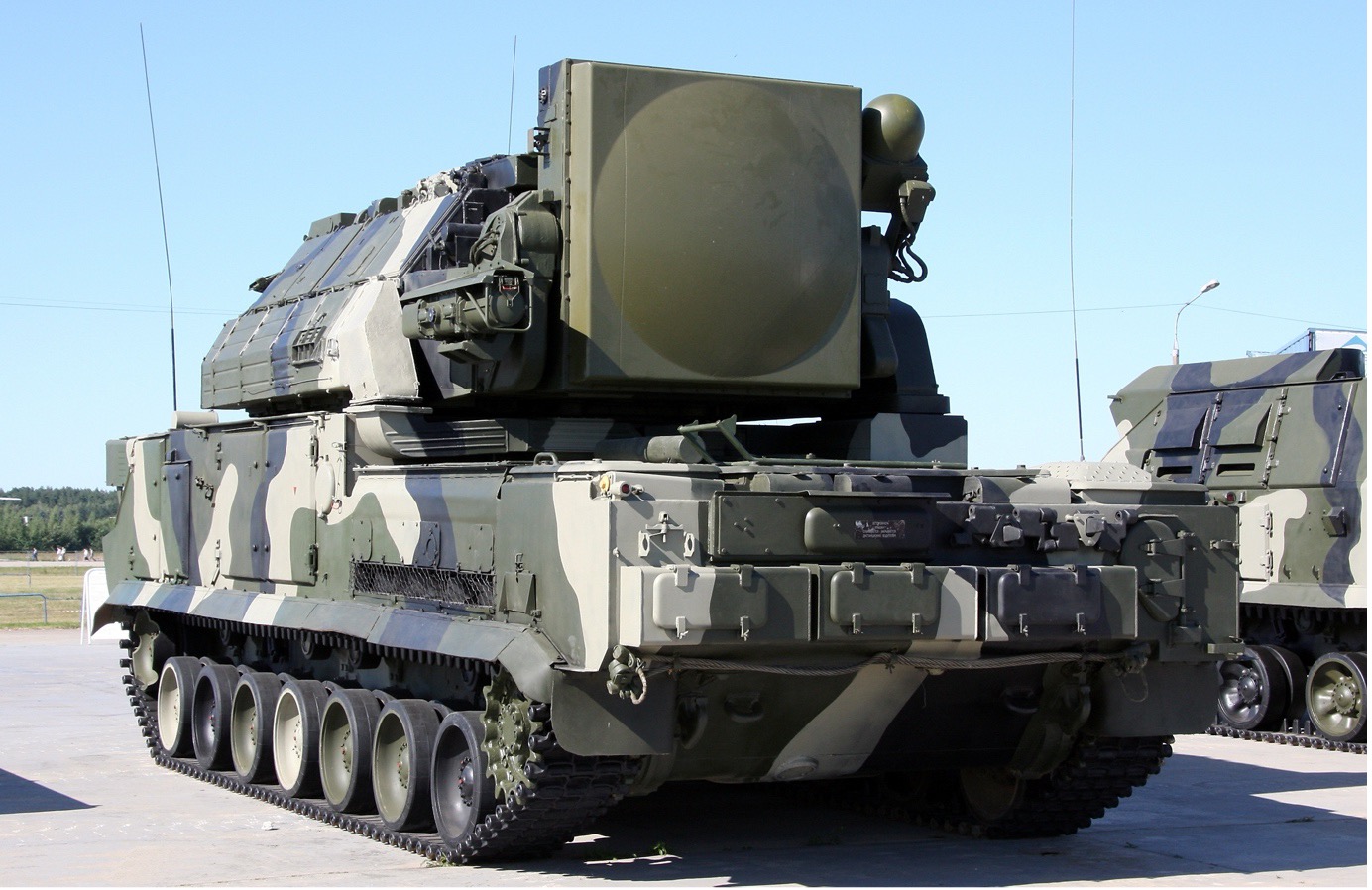Jambulat Khoperia, also known as Goliath, was larger than life, robust, vigorous, and full of humor - not the usual black humor so many soldiers can boast of but of his own delicate kind.
The weightlifter who became a soldier arrived in Ukraine a few days before the Russian attack on the capital. Jambulat, or simply Jaba, was only 25 years old.
JOIN US ON TELEGRAM
Follow our coverage of the war on the @Kyivpost_official.
He was getting ready for a weightlifting competition in Kyiv, but ended up a volunteer fighter with the Ukrainian forces.
On the first day of attack on Kyiv, Jaba and Miro Vanadze, another athlete from Georgia, fixed a few hundred Molotov cocktails.
“It was for the first time I ever held a Kalashnikov in my hands,” -- says Miro, whom I met at St. Volodymyr’s Cathedral in Kyiv on the day of the eulogy for the late Jaba.
This church, a historical sight famous for its paintings, has become a place of grieving for Georgian volunteers fighting in Ukraine.
I met Miro at the eulogy in the Kyiv cathedral were I myself was baptized decades ago.
But Jaba was a friend of mine since the first days of this big war. We met in his hometown, Tbilisi, months before the invasion. That was where we became friends.
Now he was here, fighting, changing regiments, looking for his team. He knew the dark side of war, and yet was searching for his own path in the midst of its madness, knowing that a war with a totalitarian empire is no round-trip.

Shift in Ukrainian Attitudes Toward War Endurance as Belief in Russia’s Resources Grows
“Was it you whom I saw in the woods yesterday?” Jaba texted me on March 16, a day after a more-or-less successful operation our platoon performed in Irpin.
“I could tell your inch-thick eyeglasses from a mile away,” Jaba said later when we had a chance to talk.
It was not just my face that he recognized that day. There were a bunch of volunteers from Tbilisi and other Georgian cities under the command of former deputy commander of Georgian special forces, Giga Robakidze, but Goliath spotted me first through his optical sight.
Jaba’s platoon had received an order “to shoot the enemy sabotage group coming out of the wood.” The only sabotage group operating that day was ours. That wrong order would have cost us lives if it had not been Jaba, but somebody else in their squad, who had been given that precious optical sight.
I was fighting then alongside other Georgians, who arrived in Ukraine immediately after the first barrage. We formed what we called the “Georgian platoon” within the Foreign Legion, while Jaba was with “Karpatska Sich.
Starting the war with “Karpatska Sich” volunteer batallion, he then moved to the 28th mechanized brigade.
Last week he died after being wounded in the Kherson area earlier this Fall.
Jaba Khoperia was the son of a famous field commander in the Russian-Georgian war of 1992-1993.
After the death of his son, Jaba's father, Archil Khoperia, wrote on social media: "My son, Jambulat Khoperia, was killed in Ukraine. I thought the flag we raised in the fight against the invaders was in safe hands, but the Lord brought it back to me again...”
The first news of Georgian fighters’ deaths spread on March 18 after Davit Ratiani and Gia Beriashvili were killed in Irpin following a fierce gunfight followed by mortar shelling from the Russian side.
About 30 Georgians have been killed in action or died from wounds. However, the death toll is getting higher each day with about 1,500 Georgian fighters living in Ukraine and from among those who come from that tiny country in the South Caucasus, 20 percent of which is occupied by the Russian Federation.
You can also highlight the text and press Ctrl + Enter






